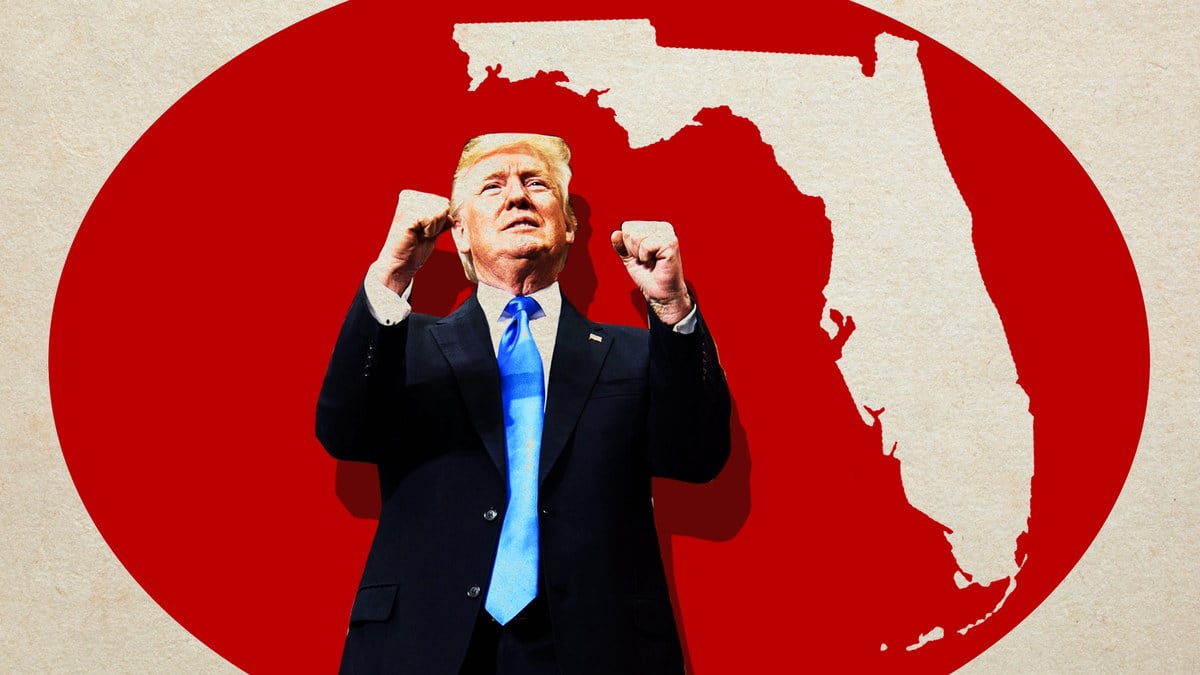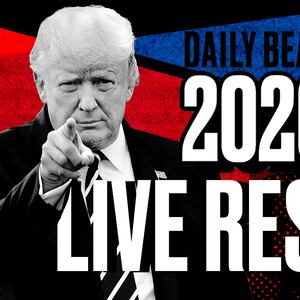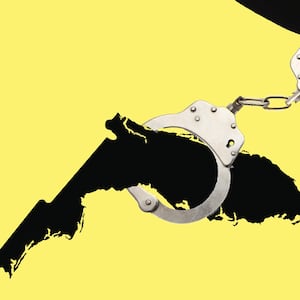As things stand at midnight, Donald Trump is projected to win the State of Florida by about 375,000 votes.
But there was a huge elephant in the polling booth this year, and his name is Jim Crow.
In 2018, Floridians voted two-to-one to amend the state constitution and allow most ex-felons to regain the right to vote. But in 2019, Florida’s Republican-controlled legislature functionally overturned that referendum by requiring that ex-felons also pay any outstanding fees and fines associated with their sentence.
Of the 1.4 million ex-felons newly eligible to vote, there were 775,000 people disenfranchised by that decision. So let’s remember what really happened here, and why.
Until two years ago, Florida was one of only a handful of states barring ex-felons from voting for life—thanks to a state constitution drafted by white Floridians in 1868 to evade the requirements of the 13th, 14th, and 15th amendments to the U.S. Constitution and preserve white supremacy in the Sunshine State.
The motive was clear. As Ari Berman reported in Mother Jones, “One Republican leader said the law would keep the state from becoming ‘n*ggerized.’ A decade later, more than 95 percent of people in Florida’s convict camps were African Americans.”
That was in part due to Florida’s extremely expansive definition of a felony, and its selective enforcement of its laws against Black people. It was Jim Crow, epitomized.
The 2018 referendum threatened to end that racist policy and bring about a sea change in the Florida electorate. The only trouble was, 74 percent of those ex-felons were Black, and thus likely to vote Democrat.
Everyone knew the Republican-dominated state legislature would respond somehow. And so, after a few failed trial balloons (including ignoring the referendum completely), respond they did.
Even though the amendment explicitly said voting rights were to be restored “automatically,” the legislature passed a law saying that before the rights could be restored, any outstanding fines and fees associated with the past conviction would have to be paid as well.
Of the approximately 1.4 million ex-felons enfranchised by Florida voters, the new requirement affected 775,000.
This policy change was in stark departure from the intent of the amendment Floridians had overwhelmingly backed, the meaning of a criminal sentence (which is imposed by a judge, while fees and fines are imposed by a variety of county clerks and local bureaucrats), and existing practice when the Florida Commission on Offender Review considered parole.
Most importantly, the law was a de facto poll tax. If you’re rich, you can pay off your fines and vote. If you’re poor, you can’t.
One reason 775,000 people had all these unpaid fines is that Florida (alone in the nation) requires the court system to fund itself through these fines and fees; the fees assessed are often astronomical—thousands of dollars even for relatively minor offenses—precisely because the state doesn’t expect most of them to ever be paid.
As reported by WLRN in Miami, between 2013 and 2018, over $1 billion in felony fines were issued, and only 19 percent were paid. The state Court of Clerks association deemed 83 percent of the fines levied during that period to have “minimal collections expectations.”
Voting rights advocates filed suit, and won at the district court. But the Trump-packed Eleventh Circuit Court of Appeals (including five Trump-picked judges) overturned that decision, and put the poll tax back into effect. Last July, the Supreme Court refused to hear the case, over a strong dissent written by Justice Sotomayor.
Advocates also furiously raised money to simply pay off the fines. Michael Bloomberg and LeBron James kicked in several million, joined by other celebrities including Michael Jordan and Ariana Grande. Grassroots donors together raised several million more. The total raised was $27 million.
But that was a drop in the bucket. All told, the effort, led by the Florida Rights Restoration Coalition, enabled about 40,000 people to vote, out of the 775,000 with fines outstanding.
There are many reasons why Donald Trump—if the numbers hold—will win Florida tonight. Polls indicated many Floridians voted with their pocketbooks, and did well enough under Trump to overlook other issues. Cubans feared Joe Biden was a socialist. Miami/Dade results were not as strong for the former vice president as Democrats had hoped. Et cetera, et cetera, et cetera.
But those factors are numerically dwarfed by Jim Crow.
At the end of the day, there were 735,000 people who should have been able to cast a vote for president, and who were denied that right by a Republican party more interested in retaining power than in heeding the will of its own population, let alone the call of justice.
More than anything else, that’s how Donald Trump won Florida.



